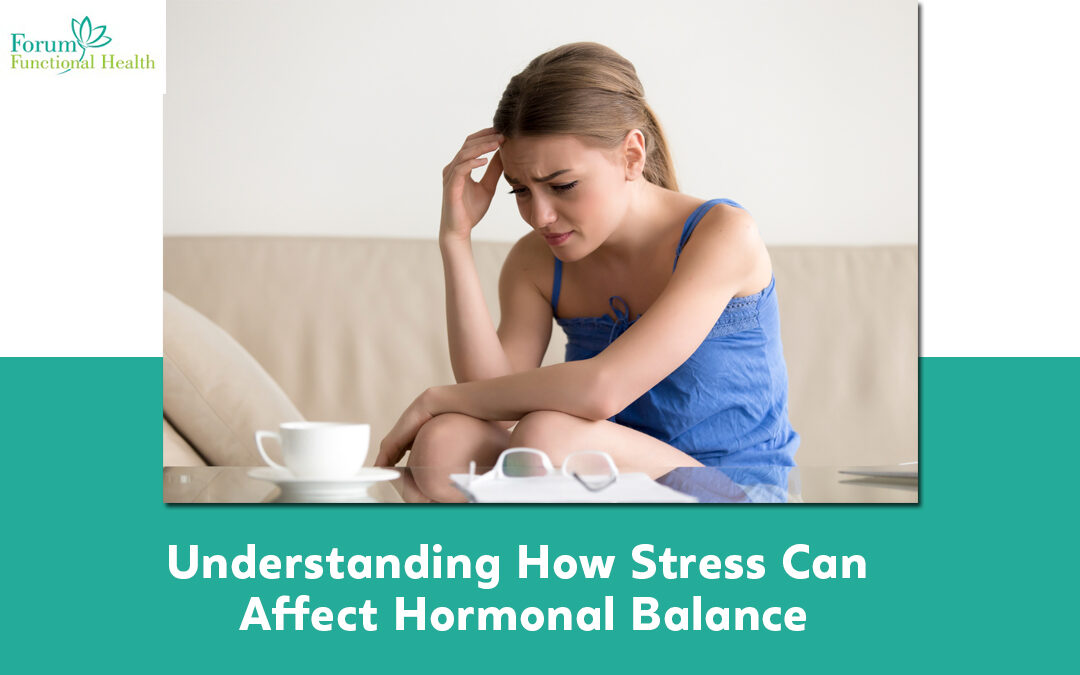Hormones are the controllers in our bodies’ complex orchestra, maintaining a balance that controls a range of physiological processes. But stress’s constant presence can disturb this exquisite symphony and have terrible consequences.
Let’s begin on a journey to learn how stress, our ever-present companion, intricately impacts our hormonal balance.
The Stress Response: When stress emerges, our body initiates a well-choreographed response known as the “fight or flight” reaction. The sympathetic nervous system orchestrates the release of stress hormones, primarily cortisol and adrenaline. In the short term, these hormones mobilize energy, sharpen focus, and prepare us to face immediate challenges.
Chronic Stress and Cortisol: While acute stress is a natural survival mechanism, chronic stress presents a different narrative. Prolonged stressors can lead to dysregulation in cortisol production. Elevated cortisol levels, intended for short bursts, become sustained, influencing metabolism, immune function, and sleep-wake cycles. This chronic elevation is associated with issues like weight gain, sleep disturbances, and weakened immunity.
Sex Hormones Under Siege: The impact of chronic stress extends to sex hormones, such as estrogen and testosterone. In women, stress may contribute to irregular menstrual cycles, worsen premenstrual symptoms, and affect fertility. For men, cortisol’s influence can lead to decreased testosterone levels, influencing libido, energy, and reproductive health.
Thyroid Troubles: The thyroid, a vital regulator of metabolism, is not immune to stress. Chronic stress can interfere with thyroid hormone production and conversion, leading to conditions like hypothyroidism or hyperthyroidism. These disruptions may manifest as changes in weight, energy levels, and mood.
The Gut-Hormone Axis: Often referred to as the “second brain,” the gut is intricately connected to hormonal balance. Chronic stress can compromise gastrointestinal health, contributing to conditions like irritable bowel syndrome (IBS) and inflammatory bowel disease (IBD). The gut-hormone axis is a dynamic interplay that can significantly impact overall well-being.
Impact on Insulin and Blood Sugar: Stress can influence insulin sensitivity, contributing to fluctuations in blood sugar levels. This can be particularly relevant for individuals at risk of or managing conditions like diabetes. Chronic stress may exacerbate insulin resistance, posing challenges for blood sugar regulation.
Strategies for Restoration
Understanding how stress disrupts hormonal balance is only half the battle. The other half involves adopting strategies to restore equilibrium:
- Stress Management Techniques: Incorporate practices like meditation, deep breathing, and mindfulness into your daily routine to alleviate chronic stress.
- Regular Exercise: Engage in physical activity to release endorphins, the body’s natural stress relievers, and promote overall hormonal balance.
- Nutrient-Rich Diet: Prioritize a balanced diet rich in omega-3 fatty acids, vitamin D, and magnesium to support optimal hormonal function.
- Adequate Sleep: Establish a consistent sleep routine to allow your body the time it needs to repair and balance hormones.
In the delicate interaction of stress and hormones, growing awareness becomes an invaluable ally. Recognizing stress’s disruptive impact on hormone balance enables people to make informed lifestyle choices, going on a journey of restoration through stress management techniques, healthy habits, and a holistic approach to overall well-being.
The Forum Functional Health Center promotes a complete health approach that seamlessly integrates traditional and alternative therapy. While healthcare professionals may propose hormone therapy, such as contraception or replacement choices in certain circumstances, alternative approaches such as acupuncture, herbal medicines, and dietary supplements are promising. Importantly, women should consult with their healthcare practitioners before incorporating these alternatives into their routines. Participating in Functional Health Center forums allows women to actively participate in discussions, share experiences, and gain useful insights, all of which contribute to the proactive management of hormone imbalances and promote overall health and well-being.

